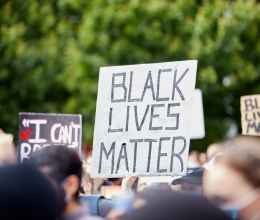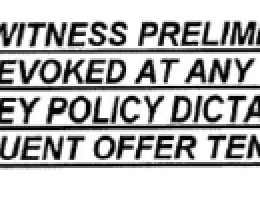
When prosecuted for simple marijuana possession in Maricopa County, Hispanic people are sentenced to significantly longer jail and prisons sentences than their white and Black counterparts.
On average, more than seven people are arrested every day for marijuana possession in Phoenix alone and statewide, Black people are three times more likely to be arrested for marijuana possession than white people.
Hundreds of thousands of lives have been upended due to simple marijuana possession. The ramifications of incarceration don’t only affect the individual, but their loved ones and communities.
That’s why the ACLU of Arizona endorses Proposition 207—the Smart & Safe Act. Legalization is on the ballot this November and it is the first step voters can take to begin to repair the decades of harm that the War on Drugs policies have inflicted on people of color.
Prop 207 is the most comprehensive criminal justice reform ballot measure in Arizona history. Our state is the only state that makes first-time, simple possession of even the smallest amount of marijuana a felony offense. Prop 207 would change that by legalizing the possession of up to one ounce of marijuana and decriminalizing the possession of up to 2.5 ounces of marijuana by making it a civil infraction, like a parking ticket, for those 21 years or older.
For those under the age of 21, Prop 207 makes a first-time possession offense a civil infraction. Young people avoid potential jail time and prosecutors are prevented from saddling people with a felony conviction for simple marijuana possession.
Decriminalization is an important interim step on the road to legalizing cannabis with a focus on racial justice. It's a concrete way to begin to repair the harms of marijuana prohibition and limit the life-disrupting consequences of a marijuana arrest.
The Campaign for Smart Justice believes in reducing Arizona’s jail and prison populations by 50 percent while simultaneously challenging racism in the criminal legal system. Arresting and jailing people for simple marijuana possession does nothing to diminish Arizona’s bloated prison population. In a state where the medical care in prisons is severely lacking, we must do what we can to decarcerate and rehabilitate.
Prop 207 cannot undo all the damage the War on Drugs has inflicted on our state, but it moves our state forward by beginning to tackle problems we can take on today.
Prop 207 would:
- Significantly reduce the harsh penalties Arizona imposes on minors in possession. For adults at least 21 years old, Prop 207 legalizes the possession of up to one ounce of marijuana.
- Create an expungement process to allow those convicted of a past marijuana offense to have their record cleared. Prop 207 would create a multi-millionaire dollar fund to notify those eligible and assist them through the expungement process.
- Create a “Social Equity Ownership Program.” This program would promote ownership and operations of marijuana businesses by individuals from communities who have been disproportionately impacted by the previous enforcement of marijuana laws. 26 new marijuana dispensary licenses would be set aside under this program.
- Establish a “Justice Reinvestment Fund” that sets aside marijuana revenue to advance alternatives to incarceration such as restorative justice efforts, jail diversion, and workforce development “in communities disproportionately impacted by high rates of arrest and incarceration.”
We are aware of how quickly interactions with police can escalate and result in violence or death, especially when those interactions include people of color. Prop 207’s legalization and decriminalization measures can help decrease police-civilian interactions by preventing law enforcement from stopping, detaining, searching, and arresting people who fall under the 2.5-ounce threshold.
It is long past time Arizona legalized marijuana in a way that tackles racial disparities head-on. Prop 207 will do exactly that—on November 3rd, vote YES on Prop 207.
Disclaimer: The ACLU is nonprofit and nonpartisan and does not endorse any candidate or political committee.



